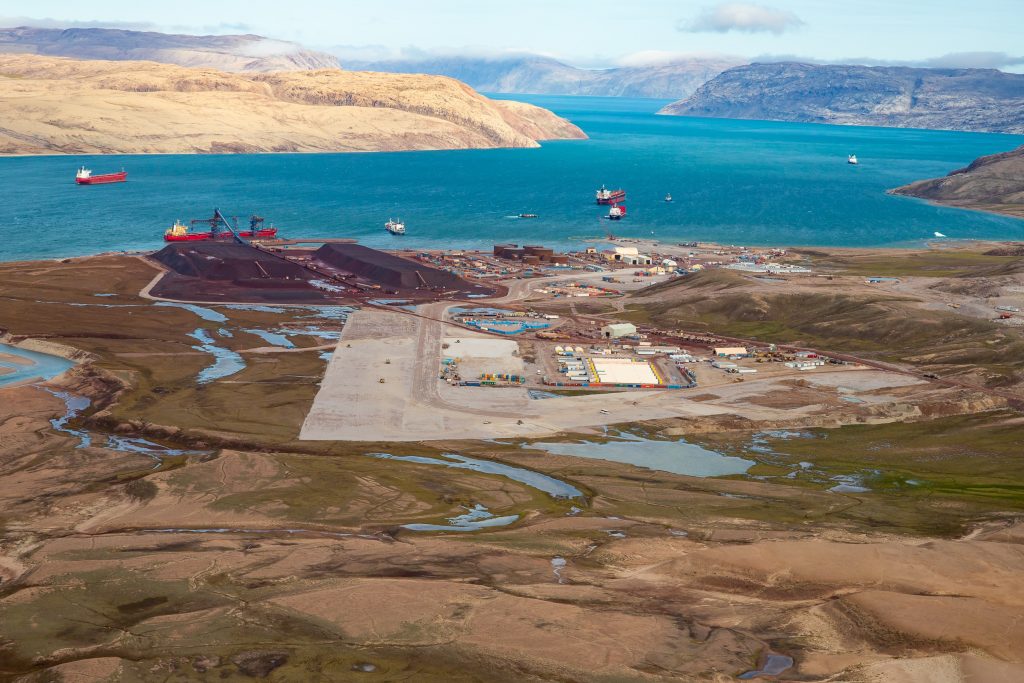Pond Inlet pitches compromise deal on Mary River mine expansion
The community wants to see an increase in iron ore production phased in over four years.

The Hamlet of Pond Inlet says it’s now ready to support a controversial expansion of the Mary River iron mine — but only if Baffinland Iron Mines Corp. meets certain conditions.
Baffinland wants permission to build a 110-kilometer railway between Mary River and Milne Inlet and to double iron ore production from six million tonnes to 12 million tonnes per year.
Pond Inlet’s municipal government, previously hostile to Baffinland’s proposal, says it’ll now agree to that production hike — but only if it’s phased in over four years at a rate of 1.5 million tonnes per year.
It also wants better Inuit employment guarantees and more limits on ice-breaking in the spring.
At the same time it says it now supports — in principle — a deal worked out between the Qikiqtani Inuit Association and Baffinland called the Inuit Certainty Agreement.
When that agreement was announced last summer, many north Baffin leaders greeted it with hostility. And Pond Inlet still says it won’t give it its full support until after it sees a promised Inuit stewardship plan.
Pond Inlet staked out this position in a Dec. 29 announcement signed by Mayor Joshua Arreak, and in a separate letter to the other four North Baffin mayors.
“There is compromise made in doing this,” Arreak told his fellow mayors.
More production means more shipping through Milne Inlet and Eclipse Sound: up to 176 ship transits per year, according to Baffinland.
The hamlet says a gradual production increase would allow better environmental monitoring, particularly for sea mammals that the Inuit of north Baffin rely on for food.
That’s consistent with a new idea called “adaptive management.”
Recently pitched by Baffinland and the Qikiqtani Inuit Association in their Inuit Certainty Agreement, “adaptive management” means the company agrees to take a flexible approach and respond to environmental problems as they arise over time.
Under the QIA-Baffinland deal, Inuit would have a strong say in any adaptive management measures that Baffinland would be required to undertake.
In addition, the hamlet wants Baffinland to increase the number of Inuit employees at Mary River by a rate of 2.6 per cent a year for four years.
It says that between 2018 and 2019, the proportion of Inuit within the Mary River’s 1,200-person workforce declined from 13.2 percent to 12.8 percent, or by approximately five people.
The hamlet says Baffinland has never come close to meeting the 25 percent Inuit labour target it agreed to in the past. That would translate to roughly 300 Inuit workers. Its best year for Inuit employment was 2016, when Inuit comprised 15.4 per cent of the Mary River workforce.
At the same time, social well-being in the region has not improved since the mine’s start-up, the hamlet said in its letter.
For example, 60 percent of North Baffin Inuit lived on social assistance in 2009. By 2018, that figure had not changed, the hamlet said.
And the number of high school graduates in Pond Inlet is actually decreasing.
In 2014-15, 20 people in the community graduated from secondary school. But by 2018-19, that figure had declined to only eight, the hamlet said.
And another sign of social distress, crime, is also on the increase. According to the hamlet, there were 424 criminal violations in 2014 and 588 in 2018.
Another hamlet condition is that in the spring, the company must wait two weeks after ice is no longer landfast before doing any ice-breaking.
That’s because hunters are still catching food and using the ice to travel on during that period. Also, a two-week icebreaking delay would protect seals, seal pups and other marine mammals, the hamlet said.
The Nunavut Impact Review Board has scheduled an in-person public hearing on the expansion proposal that’s set to start Jan. 25.
After Jan. 7, the board will likely rule on a motion made by two groups who want that start date delayed.